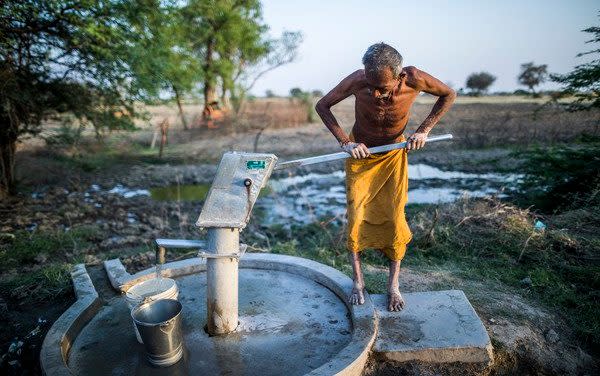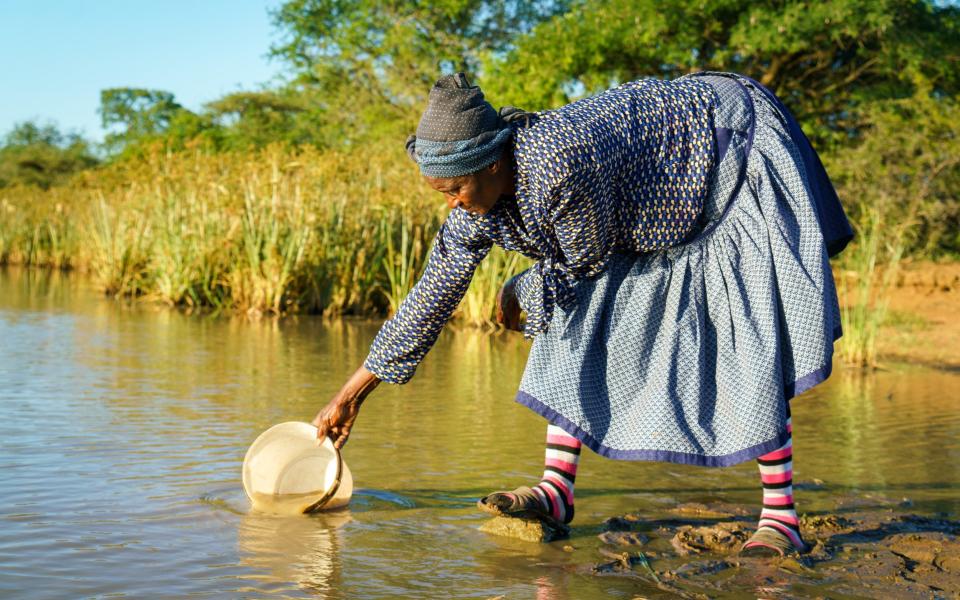Britain has a chance to lead the world on AMR – but only with concrete action and delivery

This week, the UK government launched its new five-year plan on tackling antimicrobial resistance, demonstrating the UK’s role as a global partner in this battle.
While the plan is a significant milestone in confronting the threat of deadly global superbugs, beneath the surface, it also presents an alarming mismatch between its words and action on global access to water, sanitation and hygiene.
Anti-microbial resistance is a silent global killer and one of the most pressing challenges humanity is facing, occurring when microbes such as bacteria – or superbugs – can no longer be killed by drugs that once used to work against them.
It’s responsible for at least five million deaths a year, more than HIV, malaria and breast cancer individually. And if we do not act now, it will lead to ten million global deaths per year by 2050.
Deaths from AMR are most common among children under five and in low-income countries where a lack of basics like clean water and handwashing facilities are creating environments where harmful bacteria can thrive. Globally, one in four healthcare centres have no clean water and only half have a basic handwashing facility – leaving frontline health workers unable to protect themselves and their patients from healthcare acquired infections.
But as we know, infections pay no respect to borders, so a threat anywhere is a threat everywhere. As Covid-19 reminded us, the UK is far from immune from the spread of infectious diseases – yet instead of learning lessons, we are still sleepwalking into the pandemic of pandemics – increased resistance of superbugs to antibiotics.

We know that one of the biggest drivers of resistance is the import of resistant infections through international travel. That is why, while our domestic record is second to none, it is meaningless if we don’t tackle it worldwide by taking urgent action on access to water, sanitation and hygiene in low income countries.
And it’s not just the devastating human cost that is reverberating across the world. A lack of basic water, hygiene and sanitation in health facilities is costing a group of seven countries in Sub-Saharan Africa $8.4 billion a year, according to recent WaterAid research.
Meanwhile here in the UK, healthcare acquired infections already cost the NHS at least £2.1 billion a year – a cost that will go up as these infections become increasingly resistant to antibiotics, as well as putting additional strain on our vital health service.
The government’s new five year plan rightly states the case for water, sanitation and hygiene playing a central role in tackling the AMR crisis. And yet, between, the publication of the UK’s first five-year plan published in January 2019, the onslaught of Covid-19, to now, the UK’s annual bilateral Official Development Assistance budget for water, sanitation and hygiene has been slashed by approximately three quarters (77 per cent).
This sidelines a vital solution to AMR and basic human right for all and puts the UK’s position as leaders on global health into question.
A generation-defining moment
We know there is cross-party support for action on water, sanitation and hygiene, with over 50 MPs attending WaterAid’s World Water Day event in March 2024, where the charity launched its Vote Water campaign calling on the next UK government to commit to allocating a minimum of 10 per cent of our overseas development budget to water, sanitation and hygiene.
We also know, ahead of the general election this year, that there is overwhelming public support for overseas investment in clean water. A recent YouGov study found that water was by some margin the most popular choice of the public when polled on issues to spend overseas aid on, and over half (53 per cent) rank it in their top three issues.
The UK needs to step-up to this generation defining moment and urgently prioritise funding for global access to water, sanitation and hygiene, especially ahead of world leaders meeting for September’s UN High Level Meeting on antimicrobial resistance.
The UK once led the world on public health and sanitation, from introducing the Public Health Act of 1848 following outbreaks of cholera to Florence Nightingale became a handwashing champion during the Crimean War, saving millions of lives.
Now with more lives at stake, Britain has a chance to push once again to lead the world on water, sanitation and hygiene for all and help to combat AMR for good – but only if these words are paired with concrete action and delivery.
History will judge harshly those who neglect the vital lessons of global health crises of the past.
Tim Wainwright is Chief Executive of WaterAid
Protect yourself and your family by learning more about Global Health Security

